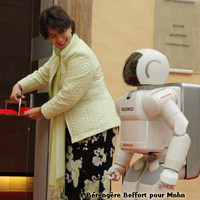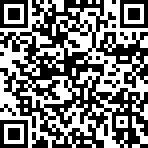Uni.lu Could Robots one day deserve rights
|
External Event
| |
|---|---|

| |
| Type of Event: | "{{{eventtype}}}" is not in the list of possible values (Event, Camp, Conference, Congress, Convention, Excursion, Exhibition, Fair, Hackathon, Meeting, Music, Party, Presentation, Seminar, Workshop) for this property. |
| From: | 2009/12/03 |
| Till: | 2009/12/03 |
| Recurring: | |
| Organizer: | |
| Cost: | 0€0 $ 0 £ 0 CHF |
| Mandatory registration: | |
| Website: | http://wwwen.uni.lu/newsl... |
| Attendees: | Log-in to RSVP |
| Contact Person(s): | |
| Keywords: | |
| Location | |
| Where: | () |
| Map: |
Loading map...
|
| Tools | |
| QrCode: | 
|
| Add to your calendar: | Download … further results |
| Alternate picture: | None |
| Announce globally: | no |
"{{{u19}}}" is not in the list of possible values (no, yes) for this property.
Within the frame of “Les Jeudis des Sciences”, Paul McNamara from the University of New Hampshire will explore the significance of Bold Artificial Intelligence on 3 December at 5.30pm on Campus Kirchberg.
Ignoring the supernatural, until our time, the only serious candidates for possession of psychological attributes were biological entities. “Bold Artificial Intelligence” is the view that it is possible in principle for a pure mechanism of some sort to possess psychological attributes.
That’s what bold AI means, and that’s what makes it theoretically and technically radical: it invites the quest to free the psychological from confinement to the biological. But what else of more practical weight might be true if the view is true? Paul McNamara will explore the significance of bold AI by asking this question with a focus on rights.
--
Paul McNamara studied philosophy at City University of New York and the University of Missouri, Columbia and received his PhD at the University of Massachusetts. He became a lecturer at the University of New Hamphire where he has been an associate professor since 1990. In 2005-06 he has been a fellow at Institute of Philosophy of the School of Advanced Studies, University of London. His areas of specialisation are deontic logic, ethical theory, and the philosophy of moral language.
-- Auditoire B02 / Campus Kirchberg / 17h30
More info: Jeudis des Sciences